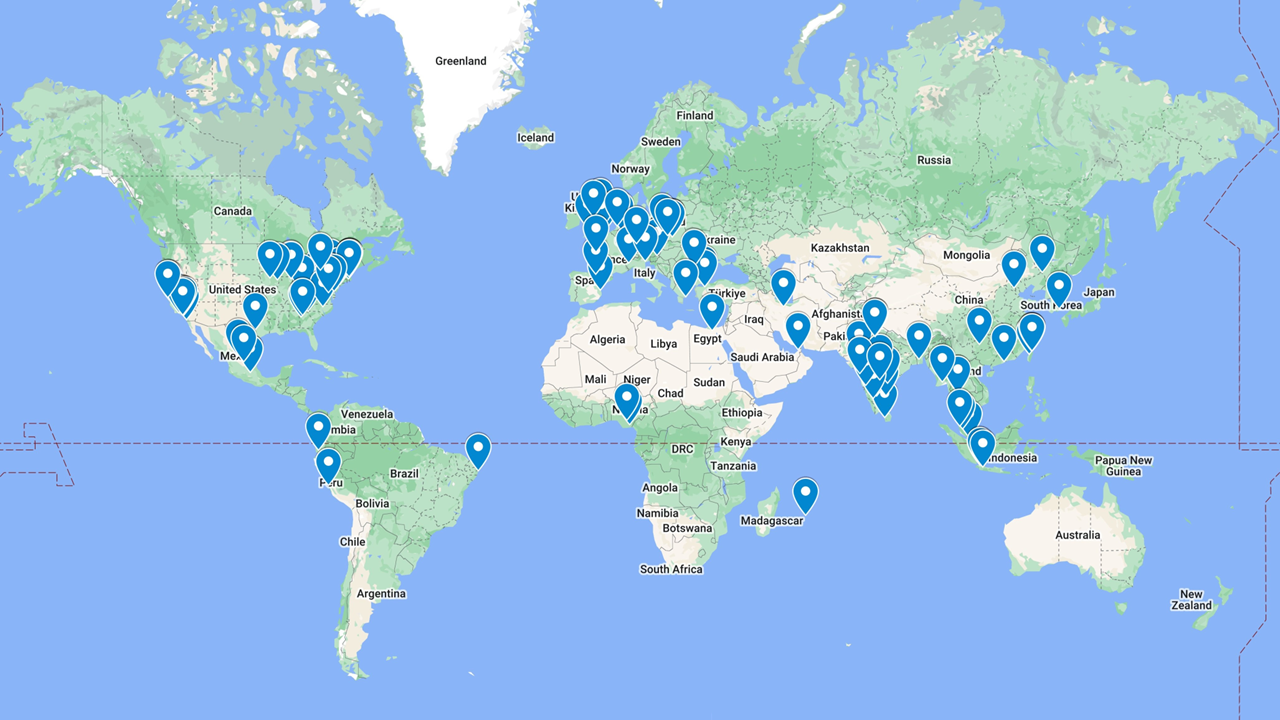Stanford Center on Longevity Announces Eight Finalist Teams for 11th Annual Global Design Challenge
The Stanford Center on Longevity is pleased to announce eight finalist teams for its 11th annual Longevity Design Challenge. As in previous years, this year’s challenge, “Designing for Life Transitions,” garnered interest from universities around the world, showcasing incredible creativity and talent from a new generation of designers.
Here are the Finalists, listed in alphabetical order:
Asterisk (University of Navarra, Spain) – Asterisk is a modular board game designed for individuals with dementia that focuses on cognitive stimulation and fine motor skills.
Bala (Delhi Technological University, India) – Bala is a digital app and game kit that provide financial literacy education for women support groups.
KUR (African Leadership College, Mauritius; Princeton University, USA) – KUR is an online platform that provides practical tips and resources for first-time parents, including local programs and access to featured relevant businesses in Rwanda.
Life Transitions Design Kit (Stanford University, USA) – The Life Transitions Design Kit is an activity set with an integrated mobile app that helps students explore potential paths in the transition from school to career.
LifeQuest (Northwestern University, USA) – LifeQuest is a tablet simulation game that helps those with intellectual and developmental disabilities (IDD) learn important life skills.
Limitless Financial (Universidad Iberoamericana, Mexico) – Limitless Financial is an online platform that teaches teenagers money management and guides them toward financial stability.
Setu (Delhi Technological University, India) – Setu is an online platform that links recently retired individuals with young start-ups, fostering an intergenerational exchange of resources.
Tradeways (San Francisco State University, USA) – Tradeways is a service designed to raise awareness of skilled trade career opportunities and foster community among young adults interested in trades and non-college pathways.

Map of Stanford Center on Longevity Design Challenge 2023-2024 Submissions
The Design Challenge aims to encourage student designers to innovate for the opportunities and challenges posed by our extended life spans, and this year, received an impressive array of submissions. Out of 228 submissions representing over 100 universities in 34 countries, these 8 teams were selected by a distinguished panel of 47 expert judges drawn from industry, academia, and the non-profit sector.
Theme: Designing for Life Transitions
The 2024 challenge, themed “Designing for Life Transitions,” draws inspiration from the Center on Longevity’s New Map of Life initiative, which seeks to build a society that better supports century-long lives.
As 100-year lives become increasingly common, the traditional life course is becoming more complex and flexible. People may take time off at different points in their work lives to focus on family or personal development, they might return to school more than once, and they are likely to change careers several times; retirement may not be an end, but a beginning of a new professional phase. Student designers were invited to envision novel approaches to navigate these emerging life transitions.
Finals Date: April 9, 2024
The culmination of the 2023-2024 Longevity Design Challenge will take place at the Finals on April 9, 2024, at Li Ka Shing Berg Hall on Stanford campus. During this event, the finalist teams will showcase their innovative designs, competing for the $10,000 first prize.
Open Invitation
The Finals are open to the public, offering a unique opportunity for attendees to witness a global array of solutions addressing the challenges of life transitions. For those unable to attend in person, a recording of the event will be made available in the days following the Finals.
The Stanford Center on Longevity warmly invites industry professionals, students, faculty/staff, and the general public to join us on April 9, 2024, as we celebrate innovation, creativity, and a future designed for longer, healthier lives.
About the Challenge
The Stanford Center on Longevity Design Challenge is a global competition aimed at encouraging students to design products and services to improve the lives of people across all ages. Established in 2013, the Challenge is focused on ways to motivate and empower people in their daily lives both inside their homes and in their community.
The challenge is made possible by generous sponsorship from a number of companies and foundations, including Target, Finance of America Reverse, American Honda Motor Company, Eskaton, Halbert Hargrove, Odyssey Group Coaching LLC, Tushara Dilanie, and Wealth Architects LLC.
